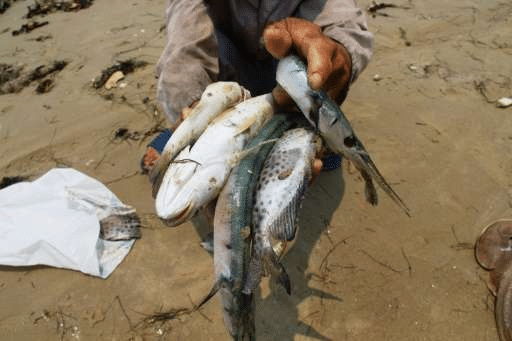Cholangiocarcinoma is cancer that forms in the ducts that carry bile from the liver to the small intestine. It is very slow growing and does not metastasize quickly, often having no symptoms for up to 40 years. It is also not often caught in early stages, more often not caught until symptoms appear, usually in Stage VI or V of the illness. The tumors cause the bile ducts to be blocked and cause cysts on the ducts as well as chronic biliary and liver inflammation. This rare type of cancer is found in only 1 of 50,000 people, mainly in SE Asia, and is identified by the following symptoms:
 Abnormal liver function tests;
Abnormal liver function tests;- Abdominal pain;
- Jaundice;
- Unexplained weight loss;
- Generalized itching;
- Fever; and/or
- Changes in the color of stool or urine.
The reason Veterans need to be aware:
Okay, so what does this have to do with Southeast Asia (Vietnam, Thailand, China, Laos, and Korea) Veterans? Well, the cause of this rare, slow-moving cancer is an organism called a liver fluke. Liver flukes enter a person’s gastrointestinal tract after ingestion of raw or undercooked fish, watercress, or drinking contaminated water. Liver flukes cause bile stasis, inflammation, periductal fibrosis and hyperplasia, leading eventually to the development of cholangiocarcinoma (bile duct cancer). However, the main issue with this cancer is that even though someone may become infected by liver flukes, the cancer may not show up until the person is often in their 60s or 70s.
To date, over 700 Veteran’s have been identified by the VA system. This number, of course, is small, taking into account that most Veterans are not connecting a liver bile duct cancer in their 70s to eating fish in Vietnam in their 20s. Therefore a lot of cases are assumed to be not reported to the VA.
How to get VA Compensation if you are diagnosed
While this cancer is not on the presumptive list for Vietnam Veterans, with proper medical documentation it can be service connected due to the slow moving growth. How do you determine service connection if you have been diagnosed with this cancer?
- File a claim with the VA (you must already be diagnosed to file the claim);
- Check to see if you are eligible for expedition of your claim
- Ensure your treating physician is aware you served in South East Asia;
- Make sure the physician knows you were exposed to the liver fluke via the consumption of fish and water
- Have your treating physician fill out a Disability Benefits Questionnaire form to submission to the VA; ensuring that they state that the cancer is more likely that not caused by service in South East Asia;
- The rationale for the physician to state this is that the occurrence of cholangiocarcinoma is South East Asia is 10 times higher than anywhere else in the world, and;
- Be sure to include on your claim any places where the cancer has spread and any other issues caused by the cancer, the treatment, or the medications as secondary disability claims.



